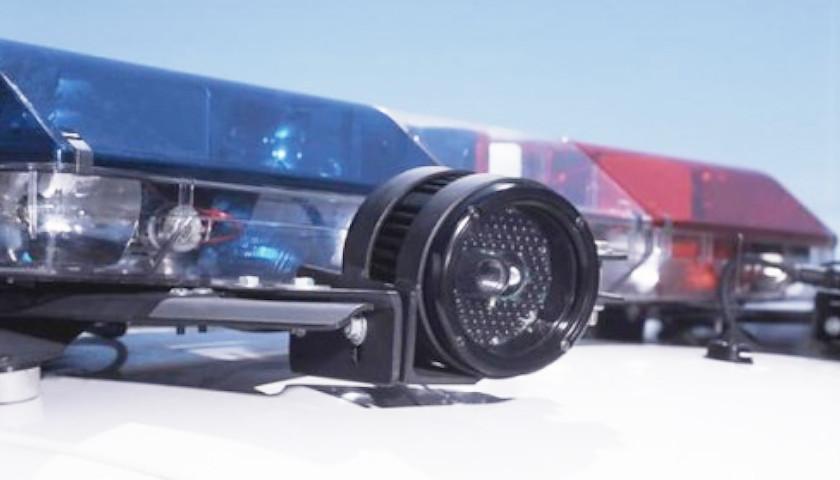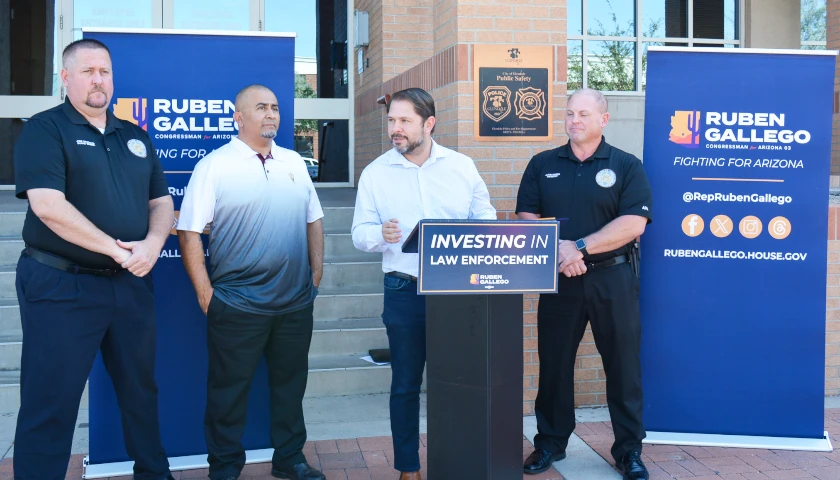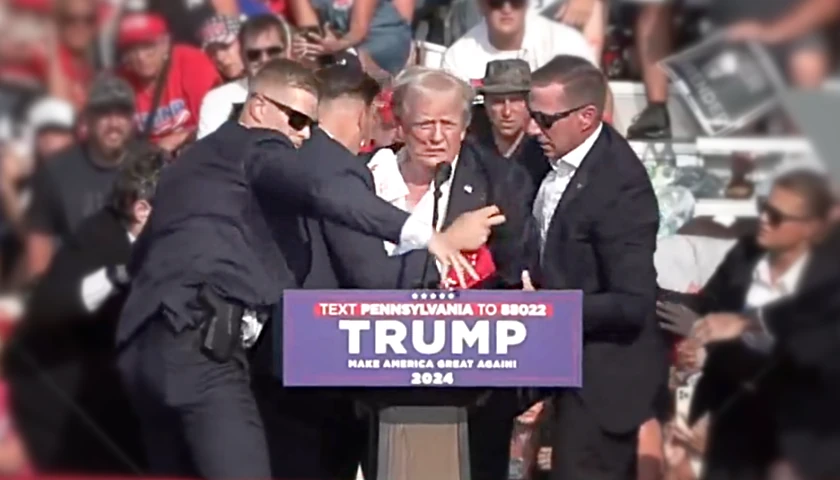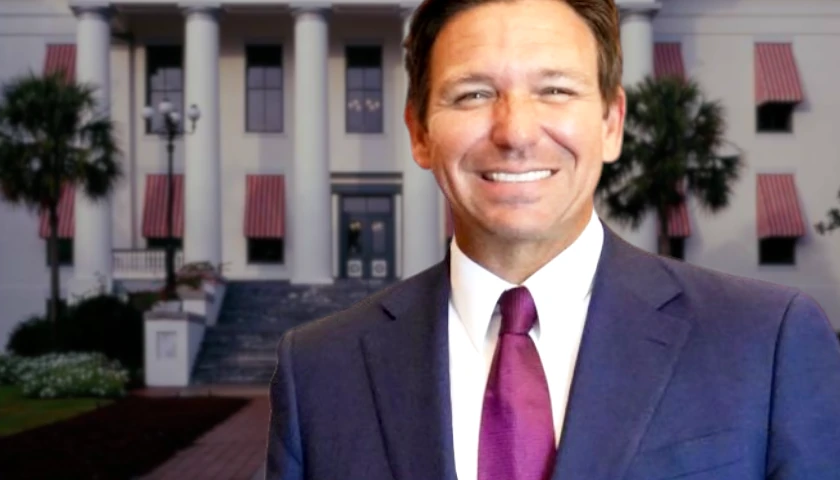by Morgan Sweeney
A bill to limit and expand law enforcement’s use of license plate readers passed out of a Virginia House subcommittee, sparking questions during a debate about the age-old dance between government overreach and public safety.
House Bill 775 from Del. Charniele Herring, D-Alexandria, would institute statewide regulations governing the use of the technology and enable law enforcement to use them on highways managed by the Virginia Department of Transportation.
Virginia law enforcement has used license plate readers for years, but is subject only to local or institutional regulation. There is no statewide regulation for the technology, according to Herring.
Kevin Kane, director of government affairs at Flock Safety, a license plate reader manufacturer that supplies readers to over 50 Virginia law enforcement agencies, testified in support of the bill.
“We believe the version of the bill in front of you today strikes the right balance between protecting citizens’ data and ensuring law enforcement has a critical tool to do their job,” Kane said.
The bill would limit law enforcement’s use of license plate readers to identify stolen vehicles, those involved in active law enforcement investigations, associated with cases of wanted or missing persons or human trafficking, or “in the vicinity of a crime and may be connected to that crime.”
It also puts guardrails around the data collected by the readers, creating penalties for its improper use. The data must be permanently deleted within 30 days — shorter than the data retention period of 48 other states, according to Herring — unless it’s part of an ongoing investigation. Its sale to third parties is prohibited.
Any law enforcement personnel who violate the parameters set by the legislation or their agency’s policies will be subject to a fine of up to $1,000 per disclosure for a first-time offense. The fine would increase to $2,500 per disclosure and termination of employment for a second offense.
Culpepper Chief of Police Chris Settle also spoke in favor of the bill, and reassured the committee that his department already has strict policies and transparency tools for using LPR-collected data.
“The Culpepper Police Department, among other agencies I see within the commonwealth, has a transparency portal webpage where any citizen can go in and see how many aggregate hits every license plate reader reads,” Settle said.
He also explained that the department has no data access after 30 days.
“Our contract with our vendor states that that information is deleted and erased and is not sold to third-party vendors. That was very important to us,” Settle said.
Both Democratic and Republican committee members had questions about the bill and whether it might not restrict government use of license plate readers enough.
For instance, readers are used for personal property tax enforcement to look for cars with unpaid taxes, as one man who testified for the bill but offered some amendments pointed out. The amendments would prevent at least some of the provisions in the bill from applying to that practice.
“I understand how vital this can be, especially for things like kidnapped children, missing children, human trafficking… I believe we are forced at this point to provide additional tools for law enforcement to address these,” said Nick Freitas, R-Culpepper. “I really want to get to yes on this, I am just a bit concerned about what this means for the expansions of even more cameras in society and even more potential threats to legitimate civil liberties.”
The bill ultimately passed the committee 8-1, with Del. Joe McNamara, R-Roanoke, voting against it and Freitas refraining from voting for or against it, but not without talk of future amendments as it moves forward. Freitas hinted at amendments in the future, and Del. Michael Jones, D-Richmond, also proposed an amendment before making a motion to report the bill.
The bill requires law enforcement agencies to complete monthly and quarterly reports to state police on their data usage and collection practices.
“I would like to follow up with the patron of this legislation to talk about a friendly amendment of just local oversight or localities having the opportunity to audit the information,” Jones said.
The bill is similar to but less restrictive than the legislation introduced by Del. Irene Shin, D-Fairfax, which incorporates warrants into plate reader use by law enforcement.
– – –
Morgan Sweeney is a staff writer covering Virginia and Maryland for The Center Square. Morgan was an active member of the journalism program as an undergraduate at Hillsdale College and previously freelanced for The Center Square.
Photo “License Plate Reader” by VCU Capital News Service. CC BY-NC 2.0.






“The bill would limit law enforcement’s use of license plate readers to identify stolen vehicles, those involved in active law enforcement investigations, associated with cases of wanted or missing persons or human trafficking, or “in the vicinity of a crime and may be connected to that crime.”
This CANNOT be achieved WITHOUT VIOLATING people’s right to privacy. It REQUIRES checking EVERYONE to determine if their “papers are in order” to allow them to travel within the State of Virginia.
This is communist to its core!